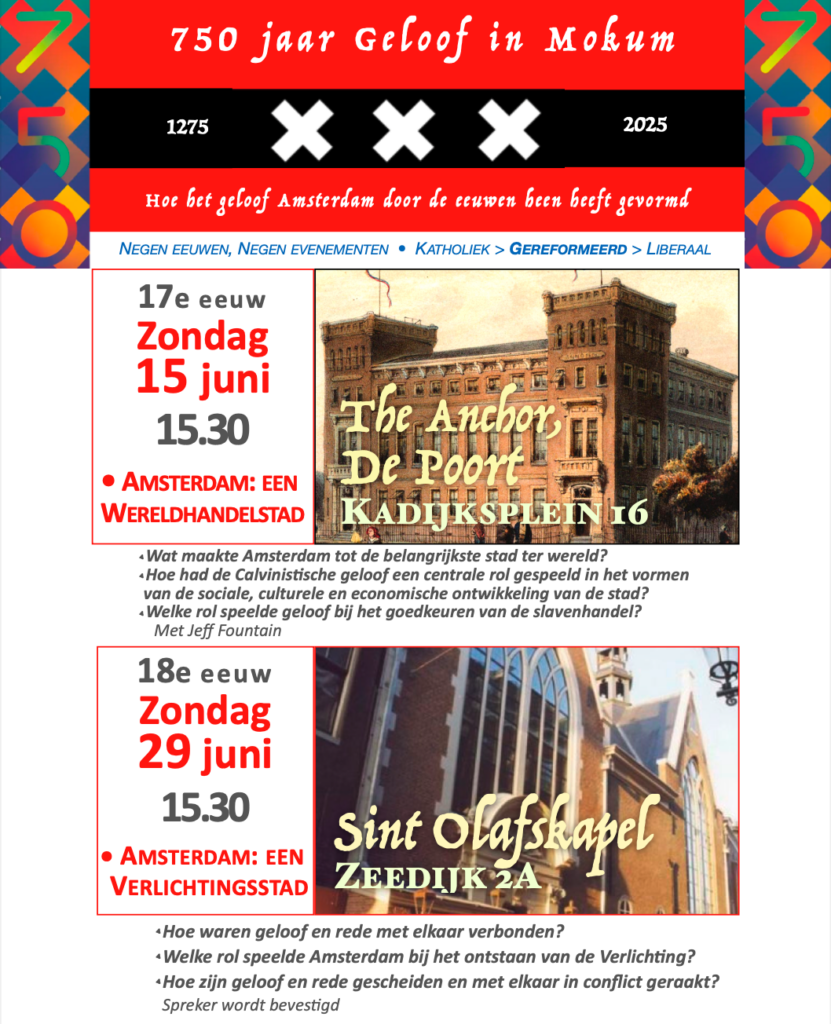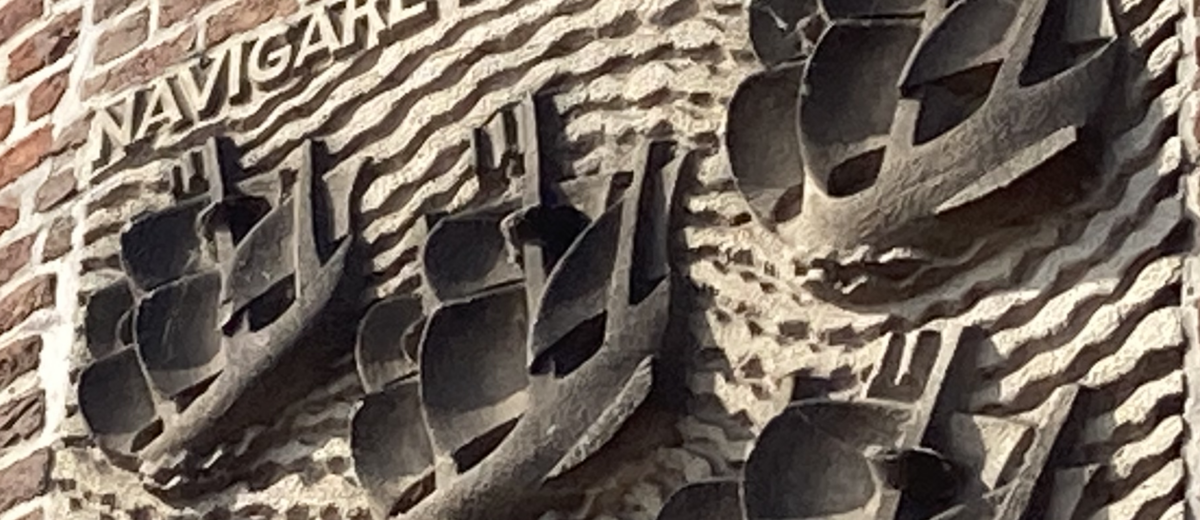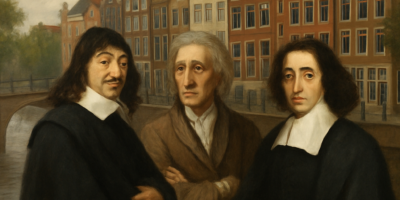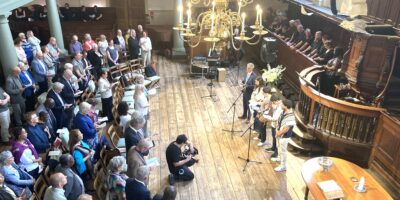This weekend, the Geloof in Mokum series explores Amsterdam’s so-called ‘Golden Age’—a time when faith played a central role in making the city the world’s leader in the 17th century.
Spoiler: faith influenced virtually everything.
Amsterdam’s rise was rooted in the Reformational worldview embraced during the Alteratie on May 26, 1578. That day, the city’s old Catholic leadership was removed and sent away in boats, marking a dramatic shift in spiritual and civic life.
The central belief: God’s sovereignty extends over all of life—not just church and family, but also commerce, politics, and culture. This shattered the medieval divide between sacred and secular, affirming that every vocation was holy if done in service to God.
Belief in the dignity of each individual and in a moral order of creation made Amsterdam the ‘womb of the modern world’. From it were born the ideas of individual liberty, urban pluralism, modern capitalism, and global trade.
Respect for individual dignity led to freedoms of conscience, thought, and speech. Reformers like John Calvin argued that faith must be voluntary—conscience must be free to respond to God. This principle encouraged a commitment—imperfect but enduring—to freedom of worship. Such freedoms were not secular accidents. They sprang from the deep theological foundations of the Dutch Reformation, which gave moral legitimacy and structural coherence to the city’s institutions and ambitions.
Trade, finance, and craftsmanship were no longer just about survival or wealth. They became callings, stewardships of divine trust, inspiring a disciplined, industrious, and morally serious economic culture that fueled Amsterdam’s commercial success.
Haven
Amsterdam became a haven for Jews fleeing Iberian persecution, for Anabaptists, Lutherans, and others who were unwelcome in much of Europe. This theological respect for conscience fostered a pluralistic society that protected religious minorities while maintaining a shared moral foundation.
If all believers were to read and interpret Scripture, then open discourse was not only allowed—it was essential. Amsterdam became known as ‘the bookshop of the world’. Its printing presses published theological works, political pamphlets, and scientific texts, making it a hub of European intellectual life. This intellectual energy wasn’t a rebellion against faith, but a consequence of it. Truth was seen as God’s domain, and pursuing it—in theology, law, or science—was a sacred duty.
Reformed covenantal theology gave deeper meaning to freedom of association. It wasn’t about unchecked individualism, but about cooperative life under God.
Drawing on biblical models, Reformed thinkers envisioned society as a network of covenants—mutual agreements under divine authority. This inspired new forms of political accountability, civic participation, and institutional trust. Guilds, merchant associations, and councils became covenantal communities, bound by shared responsibilities and moral commitments.
Even Amsterdam’s global reach—its trade networks and colonial ventures—was shaped by theology. The doctrine of providence taught that God governs the world in wisdom, and people are called to explore and steward it. This inspired a Protestant ethic of exploration, risk-taking, and engagement with the world. Trade routes to Asia, Africa, and the Americas were seen not only as economic ventures, but as part of a divine mandate to fill and manage the earth.
While the legacy of colonialism deserves critical scrutiny, the original impulse was rooted in a belief in the world’s God-given value and humanity’s responsibility within it.
Blindspots
Slavery however was the major anomoly to this picture of flourishing and well-being. In the 17th century, Dutch church leaders—particularly within the Nederduitse Gereformeerde Kerk—offered various theological, moral, and pragmatic justifications for the slave trade, often in line with broader European Christian rationalizations of the time. Their reasoning was shaped by a mix of religious ideology, economic interests, and prevailing social norms.
We will address the blindspots of Dutch Christians in tomorrow’s session and ask ourselves where our own blindspots may be, regarding issues of justice today.
Despite this glaring incongruity, Amsterdam was universally seen as the most advanced city on earth by the mid-1600s. Its multi-ethnic, multi-religious population enjoyed Europe’s highest per capita income. It had the world’s busiest port, the most advanced banking and insurance systems, the largest publishing industry, and leading research in optics, medicine, botany, and astronomy
Amsterdam became a new model of civilization—based on reason, trade, tolerance, and self-governance. Amsterdam’s modern freedoms weren’t a break from the Christian faith—they were a flowering of faith. Its commercial energy, political tolerance, and cultural creativity were grounded in a theological vision: God reigns over all, every person bears His image, and every part of life is charged with divine purpose.
What happens however when those freedoms become disconnected from their faith foundations?
That’s the focus of the next Geloof in Mokum event on June 29, exploring the 18th century.


Till next week,



